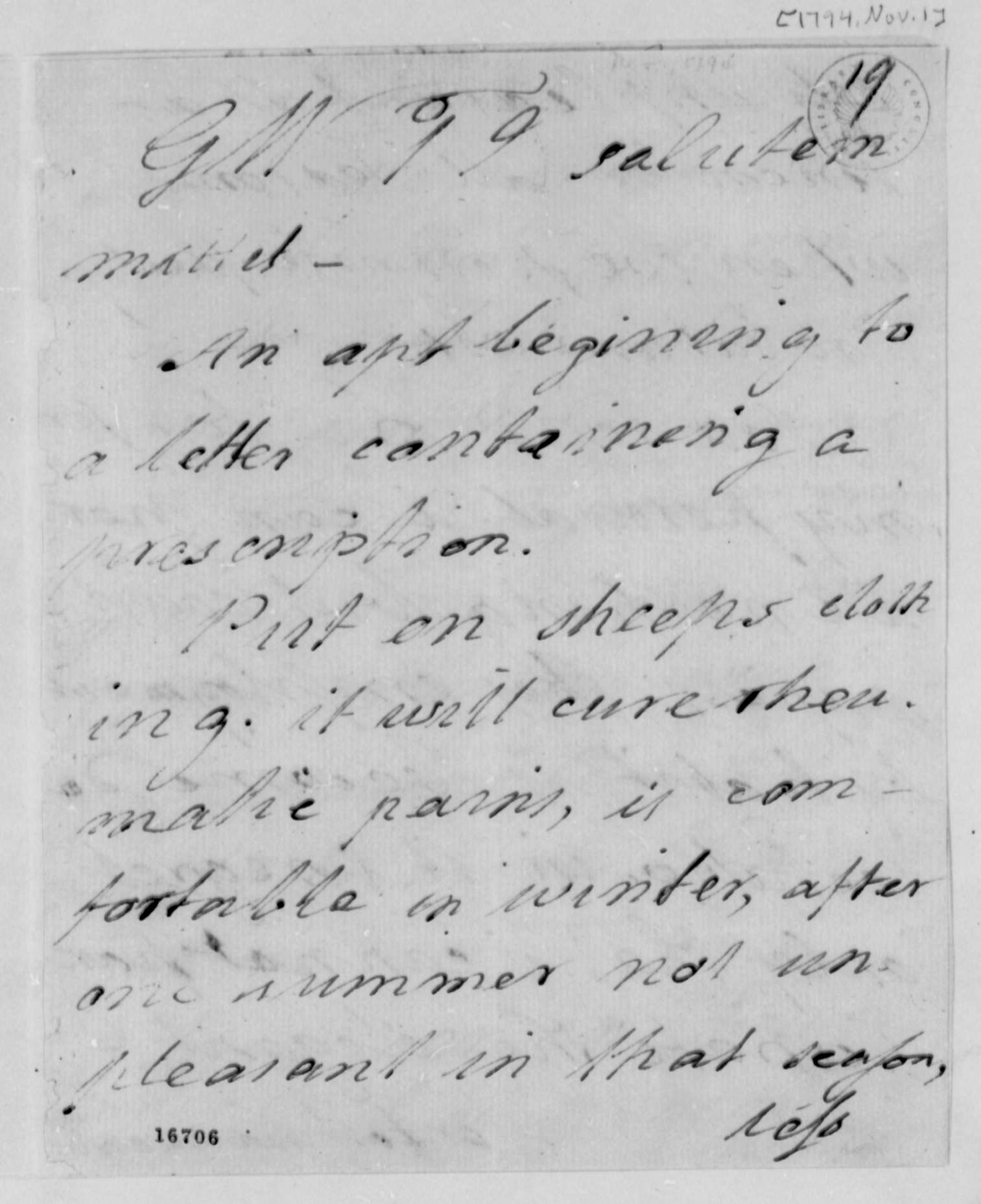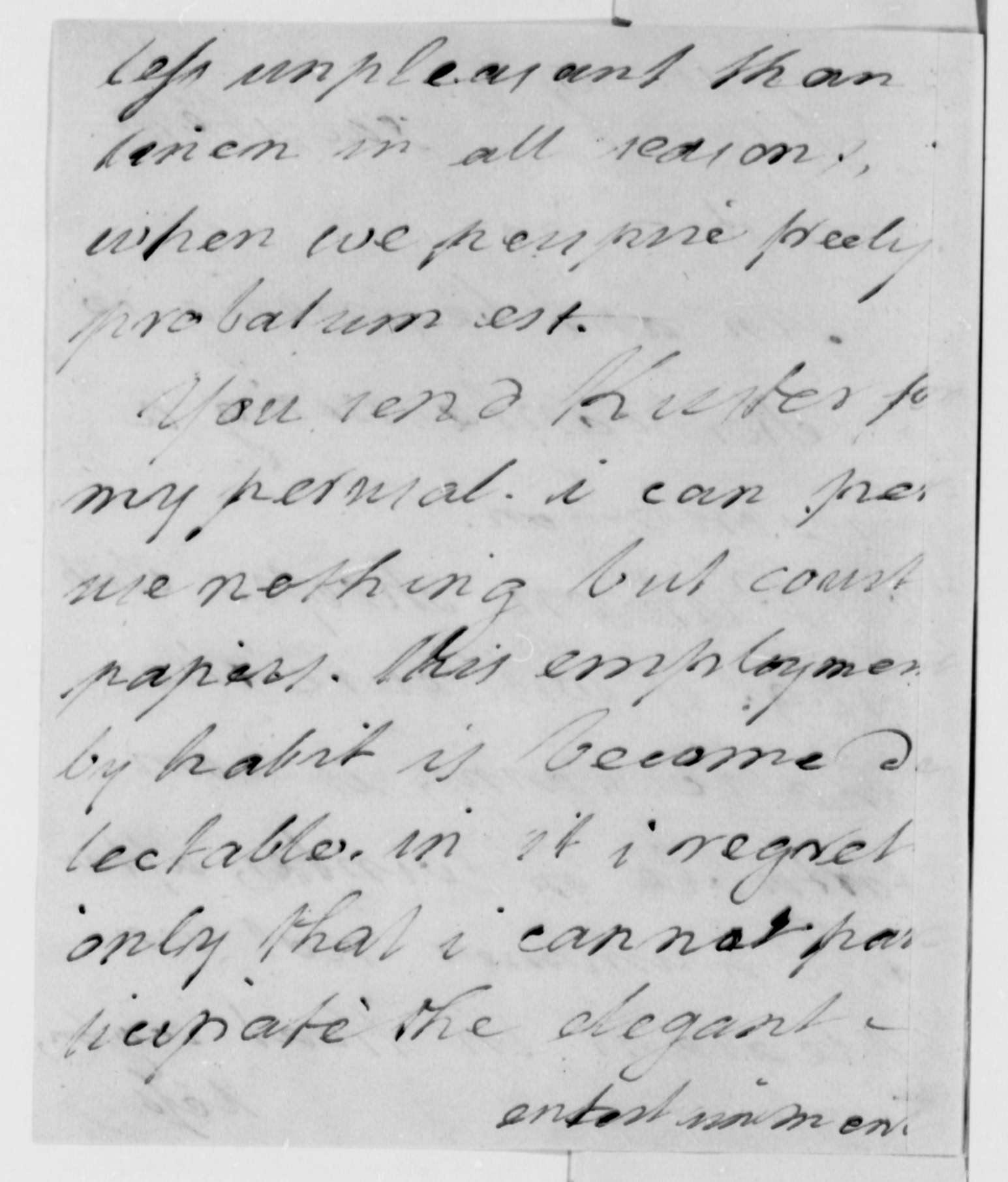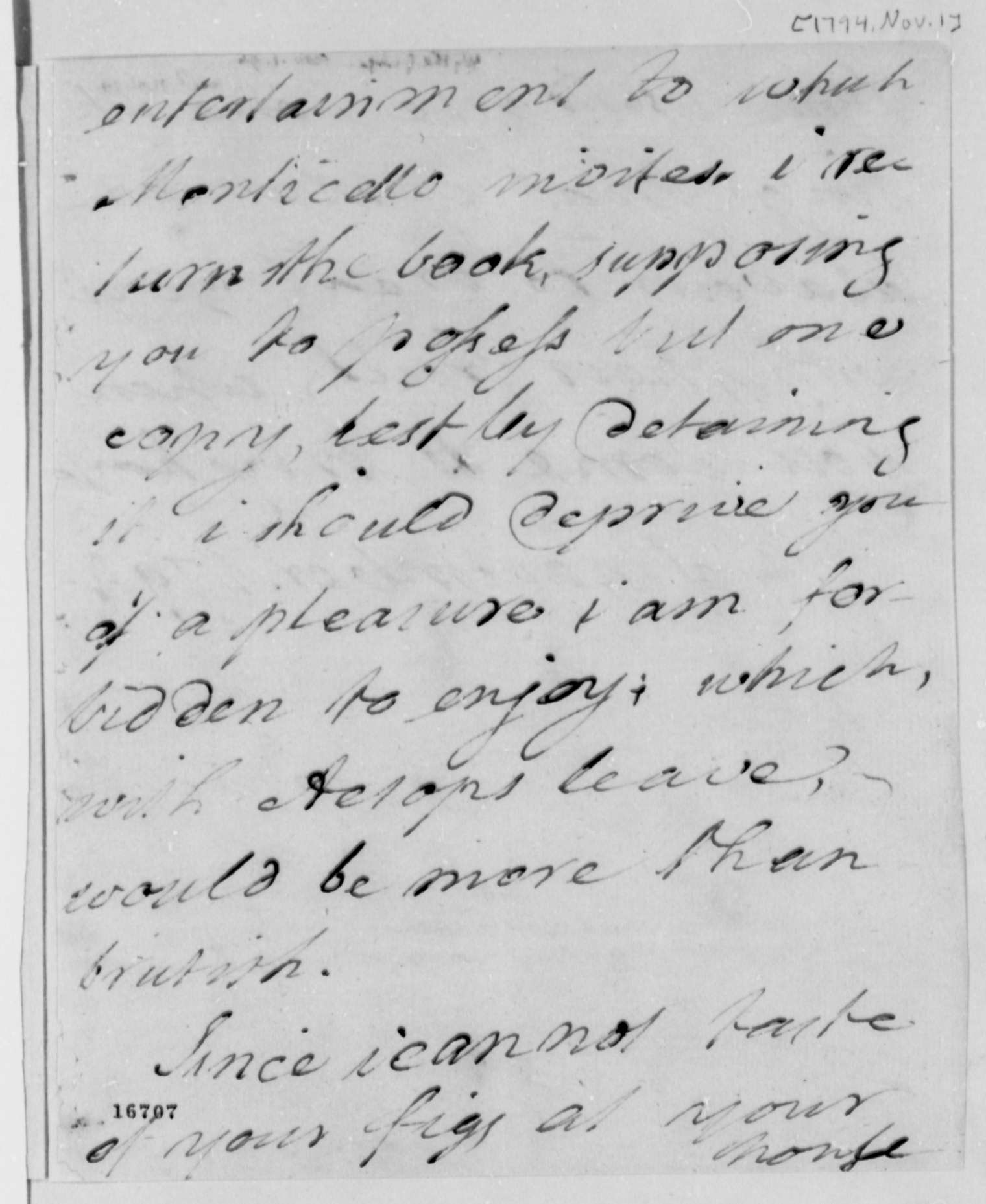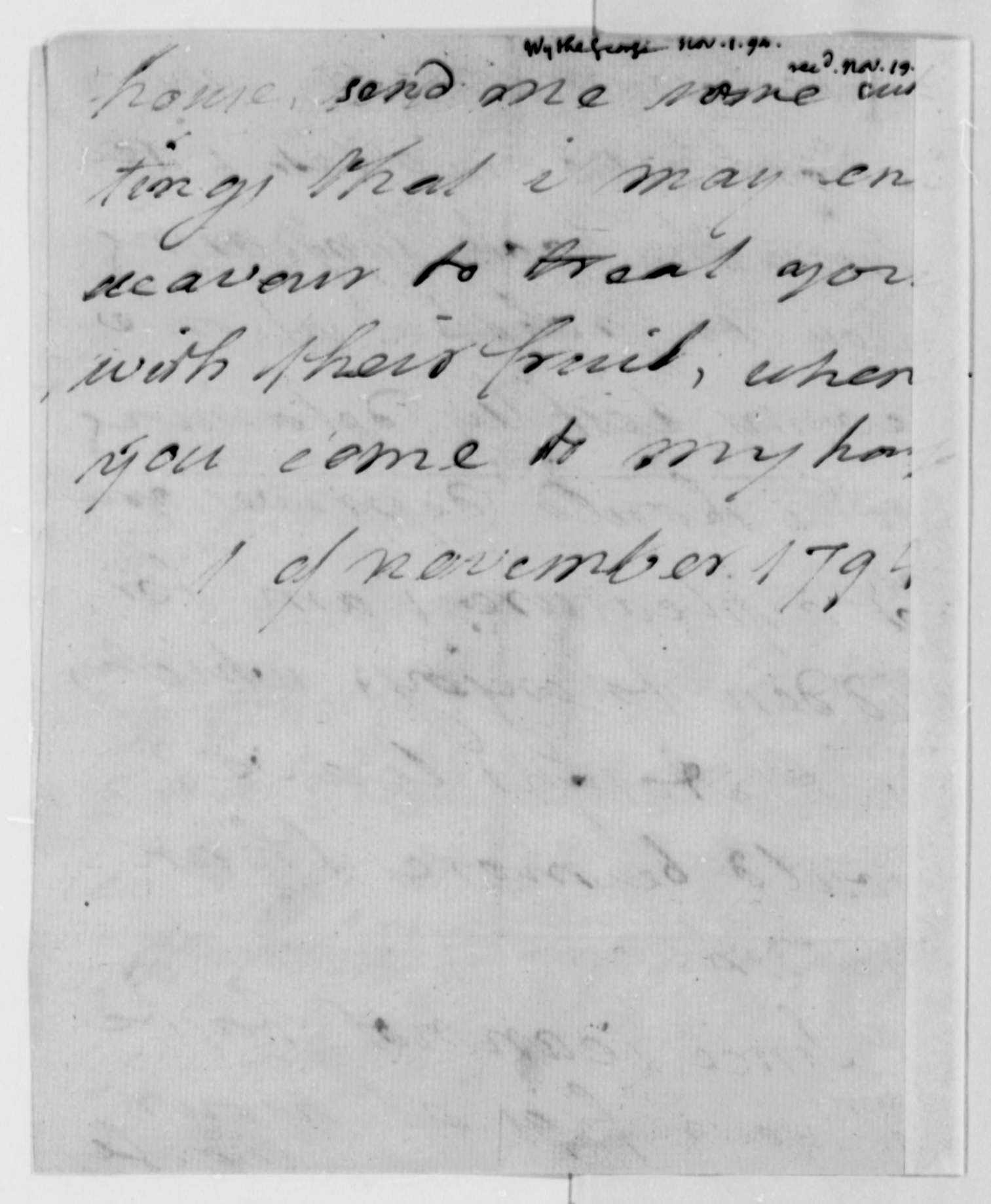Wythe to Thomas Jefferson, 1 November 1794
George Wythe is responding to Thomas Jefferson's letter from October 24. Wythe suggests putting on wool to cure the rheumatic pains Jefferson mentioned in his last letter. Wythe sends back the book by Küster because he has no time to read it with all the court papers he has to read. He figures that it is the only copy Jefferson has and doesn't want to deprive him of the enjoyment of reading it. Since Jefferson speaks so highly of his figs, Wythe asks for him to send some cuttings of them.

"Wythe to Thomas Jefferson, 1 November 1794, pg 1." Image from the Library of Congress, The Thomas Jefferson Papers.
Letter text
Page 1
An apt beginning to a letter containing a prescription.
Put on sheeps clothing. it will cure rheumatic pains, is comfortable in winter, after one summer not unpleasant in that season, less
Page 2

"Wythe to Thomas Jefferson, 1 November 1794, pg 2." Image from the Library of Congress, The Thomas Jefferson Papers.
less unpleasant than linen in all seasons when we perspire freely probatum est.
You send Kuster for my perusal. i can peruse nothing but court papers. this employment by habit is become delectable, in it i regret only that i cannot participate in the elegant entertainment
Page 3

"Wythe to Thomas Jefferson, 1 November 1794, pg 3." Image from the Library of Congress, The Thomas Jefferson Papers.
entertainment to which Monticello invites. i return the book, supposing you to possess but one copy, lest by detaining it i should deprive you of a pleasure i am forbidden to enjoy; which, with Aesops leave, would be more than brutish.
Since i can not taste of your figs at your house
Page 4

"Wythe to Thomas Jefferson, 1 November 1794, pg 4." Image from the Library of Congress, The Thomas Jefferson Papers.
house, send me some cuttings that i may endeavour to treat you with their fruit, when you come to my house.
1 of november. 1794.
See also
- Lud. Kusterus de Vero Usu Verborum Mediorum Eorumque Differentia a Verbis Activis & Passivis
- Thomas Jefferson to Wythe, 24 October 1794
- Wythe to Thomas Jefferson, 26 March 1795
References
- ↑ "Sends greetings (health)." Used by Ovid to imply distance, rather than the traditional "salutem dicit." Mary H. T. Davisson, "Tristia 5.13 and Ovid's Use of Epistolary Form and Content," Classical Journal 80, no. 3 (February - March, 1985), p. 243.